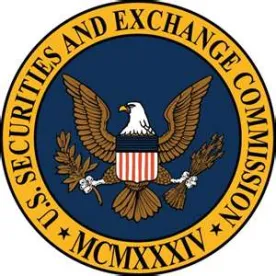Be Careful to Adhere to Best Practices When Approving Advisory Agreements
The Securities and Exchange Commission instituted and settled an administrative proceeding against an investment adviser, its principal, and three independent directors of a registered investment company for process failures in connection with the directors' evaluation of fund advisory contracts. Release No. IC-31678 (June 17, 2015). The proceeding was brought under Section 15(c) of the Investment Company Act of 1940, which requires fund advisory contracts to be approved by the independent directors.
Key Takeaway. The enforcement action signals that the SEC will take it seriously when fund advisers and independent directors fail to adhere to best practices in the advisory contract approval process.
Summary. The investment advisor provided investment management services to various mutual funds within two multi-series structures. The SEC investigation found that as part of the approval of the continuation of the advisory agreements, what is known as the “15(c) process,” the board of trustees requested that the advisor provide certain information regarding advisory fees paid by comparable funds as well as the nature and quality of the firm’s services. There was no documentary evidence that the advisor provided or that the trustees evaluated fees paid by comparable funds.
The SEC investigation also found that the advisor provided incomplete responses about the nature and quality of services provided by the advisor versus services provided by the funds’ sub-adviser and administrator, and the trustees did not request or receive additional materials. And the SEC found that the advisor omitted or provided inaccurate information requested by independent directors in connection with board meetings to approve the firm’s advisory contract:
-
By supplying a fee chart containing inapt comparisons and erroneous information while omitting other details
-
By failing to provide certain information about profitability and an expense limitation agreement that had been in place to limit the relevant fund’s expenses
-
By informing independent directors that a fund had appropriate breakpoints when, in fact, breakpoints were omitted from the advisory contract
As a result of the SEC findings, the SEC stated: “As the first line of defense in protecting mutual fund shareholders, board members must be vigilant,” and these “trustees failed to fully discharge their fund governance responsibilities on behalf of fund shareholders.” The staff of the SEC added: “The advisory fee typically is the largest expense reducing investor returns,” and these trustees “fell short as the shareholders’ watchdog by essentially rubber-stamping the adviser’s contract and related fee.”
SEC Ban on Third-Party Solicitation Effective on July 31, 2015
Back in 2010, the SEC adopted Rule 206(4)-5 (the “Pay to Play Rule”) under the Investment Advisers Act of 1940 to prohibit registered investment advisers from providing advisory services for compensation to a government client for two years after the RIA or certain of its executives or employees (“covered associates”) made a contribution to certain elected officials or candidates. The Rule also prohibits the RIA and its covered associates from, directly or indirectly, providing a payment to a third party for a solicitation of advisory business from any governmental entity on behalf of the adviser, unless that third party is a “regulated person.” The term “regulated persons” includes a registered investment adviser, broker-dealer or municipal adviser. The compliance date for the ban on paying a non-registered third party for soliciting a governmental entity had been postponed by the SEC on several occasions while final rules on municipal adviser registrations were complete. Those final rules have now been completed by the SEC.
Recent SEC Enforcement Actions Against Investment Advisers’ Chief Compliance Officers May Be Sending the Wrong Message
During a public statement on June 18, 2015, SEC Commissioner, Daniel M. Gallagher expressed doubt about whether the SEC’s recent enforcement actions against chief compliance officers (CCOs) of registered investment advisers was sending the appropriate message to the investment advisers and their compliance personnel.
Commissioner Gallagher cited two recent SEC enforcement actions (which he voted against) in which the CCO was charged with causing the RIA to violate Rule 206(4)-7 under the Investment Advisers Act of 1940. The Rule requires registered investment advisers to adopt and maintain written policies and procedures reasonably designed to prevent violations of the Advisers Act and its rules. In one of the two enforcement matters, the CCO was charged with causing a violation of the Rule due to the CCO’s alleged failure to ensure that the RIA had reasonable policies and procedures in place to monitor the outside business activities of the RIA’s employees, and that appropriate disclosure was made regarding conflicts of interests to the RIA’s clients. In the second matter, the CCO was similarly charged in connection with the failure to discover the long-term theft of client assets by the RIA’s president. The charges cited by the staff are based, in large part, that the CCO is responsible for the implementation of the RIA’s written policies and procedures in order to comply with the Rule.
According to Commissioner Gallagher, the Rule does not make it clear as to whether it is the responsibility of the CCO, the RIA’s management, or both to implement and maintain the written policies and procedures reasonably designed to prevent violations. However, the enforcement actions cited by Commissioner Gallagher appears to indicate that the SEC believes that the CCO is the primary, if not the sole person, responsible for compliance with the Rule.
Commissioner Gallagher argues that the SEC’s position is counterproductive as the CCO is the “first line of defense” and may be the “only line of defense” in prevention of violations. Accordingly, it may be necessary to cut CCOs some slack in determining compliance responsibility under the Rule.
Finally, Commissioner Gallagher cites the need for the SEC to take a hard look at the Rule to determine if there needs to be amendments or at least some industry guidance as to the roles and responsibilities of both management and CCOs with respect to maintaining compliance with the Rule.
SEC Staff Provides Guidance on Personal Securities Transaction Reports
Rule 204A of the Investment Advisers Act of 1940 requires an RIA to maintain written policies and procedures reasonably designed to prevent the RIA and its employees from misusing material non-public information. The RIA is to provide and maintain a written “Code of Ethics” to require certain of its personnel (“access persons”) to report his or her personal securities transactions to the RIA. The term “access persons” includes the RIA’s officers, directors, partners and all supervised persons who have access to non-public information. Such persons are required to report their holdings and securities transactions to the RIA at certain times.
An exception to the reporting requirement by such persons is where an access person has securities in one or more accounts over which the access person has no “direct or indirect influence or control.” The SEC’s Division of Investment Management through a recent IM Guidance Update (No. 2015-03) provides some guidance on use of the exception under Rule 204A. The staff receives questions about what types of accounts would fall under those where the access person has no direct or indirect influence or control.
One such account may be a “blind trust” but only under certain conditions. A blind trust is typically set up for the benefit of an access person but is managed by a trustee and the access person has no knowledge or influence over the trustee’s investment decisions for the trust’s account.
The SEC’s staff of the Division of Investment Management believes that a blind trust set up for the benefit of an access person may qualify for the exception to the reporting requirements of the Rule if the access person did not:
-
Suggest purchases or sales for investments to the trustee or third-party discretionary manager
-
Direct purchases or sales of investments
-
Consult with the trustee or third-party discretionary manager as to particular investments to be made by the trust
In order for the RIA to help determine if the access person directly or indirectly had influence or control over the blind trust, the staff suggests that the RIA consider the following:
-
Obtain information about the relationship between the access person and the trustee or third-party manager
-
Obtain periodic certifications from the access person and the trustee or third-party manager as to the access person’s influence or control
-
Provide precise wording to the access person as to the exception from the reporting requirement as to having “no direct or indirect influence or control”
-
On a random basis, require a report on holdings and transactions in the trust to determine if such holdings or transactions would have been prohibited without the availability of the exception
The staff cautions that obtaining certifications from the access person, trustee and third-party manager are not, by themselves, sufficient to ensure that the access person does not directly or indirectly have influence or control over the person making the investment decisions for the trust.





 />i
/>i

